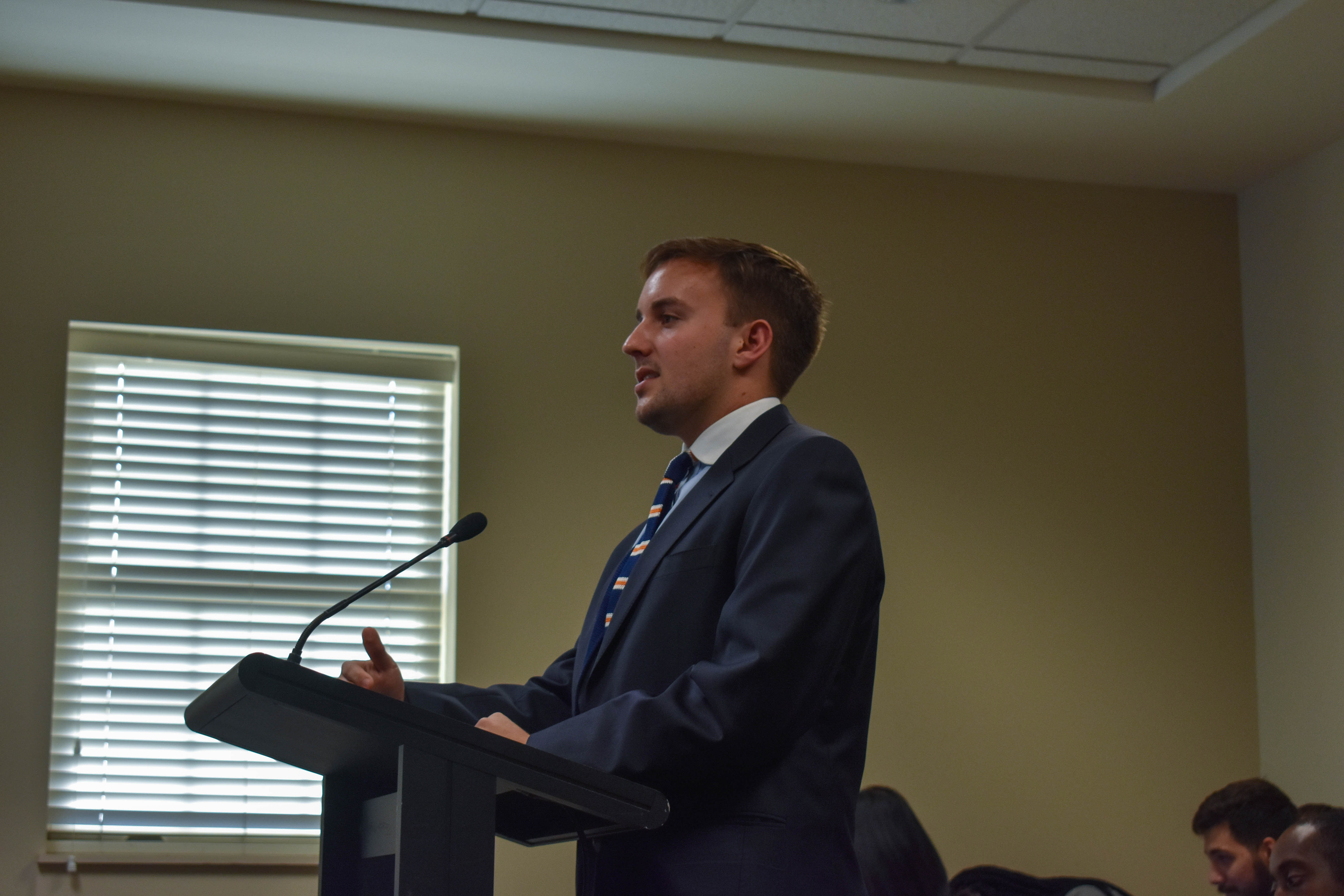The SGA voted Wednesday in support of a resolution urging the University of Maryland to continue charging in-state tuition from DACA-eligible students who live in Maryland, despite the end of the Deferred Action for Childhood Arrivals program.
Madelyne Ventura, president of PLUMAS, said many students are uncertain about the fate of their in-state status after the Obama-era executive order expires.
“That’s a very important issue that the university should take a stand on,” said Ventura, a senior mathematics major. “DACA students receive in-state tuition, but if they are stripped away of that then they will be charged out-of-state tuition, which many of them struggle to pay for.”
After President Trump announced the end of the executive order on Sept. 5, the SGA passed emergency legislation on Sept. 6 to affirm its support of the BRIDGE Act and the DREAM Act, which are some options for Congress to protect DACA students through legislation.
Student organizations including Political Latinxs United for Movement and Action in Society, ProtectUMD, NAACP and the Black Student Union suggested the SGA add language urging financial support of DACA students in the preliminary resolution that passed two weeks ago. However, the SGA felt it was necessary to create separate legislation that focuses on financial support, said SGA Speaker Pro-Tempore Leah Barteldes.
[Read more: UMD SGA affirms support of federal legislation protecting DACA recipients]
Barteldes, who was a co-sponsor of the resolution that passed 29-0 with six abstentions, said she felt it was important to create the resolution because DACA students deserve to be in our country.
“DACA students have only ever known America, and when we talk about deporting them, you’re deporting them to a country that they may have never known,” Barteldes, a junior government and politics and public policy major, said. “America is their home, and they deserve to be here as much as any … American citizen, and especially in college they deserve to have an equal opportunity to the education that any other student is getting.”
Currently, students at this university may apply to be considered for in-state status if they have held DACA status for 12 consecutive months prior to the term they are applying for.
Students who do not hold DACA status can also apply to be considered for in-state tuition if they meet requirements under the Maryland Dream Act. The act exempts some students from nonresident tuition if they meet certain requirements such as graduating from a Maryland high school and first attending a Maryland community college.
Following the announcement that DACA will be phased out, Trump said Congress has six months to legalize the program.
Mihir Khetarpal, SGA’s director of governmental affairs, said while it is possible that Congress will pass legislation to codify DACA within the next six months, the SGA resolution is still important so the university can reaffirm its support for undocumented students.
[Read more: UMD PLUMAS is helping DACA students pay fees so they can renew their status]
University President Wallace Loh said the University System of Maryland remains supportive of DACA and has done everything it can to continue supporting students who receive it. The University System of Maryland’s Board of Regents assesses tuition changes, but Loh said he thinks they will “listen very sympathetically and with great empathy to the proposal of SGA.”
“I’m completely supportive of anything to make it easier for DACA students to remain and eventually have a path to citizenship,” Loh said.
The SGA also donated $3,000 from its executive reserves to the Student Crisis Fund, which provides assistance to students who demonstrate financial need in emergency situations. The donation was an effort to match the amount that PLUMAS raised for DACA student application renewal fees through its Dream Gala in February.
Both organizations partnered with this university’s undocumented student coordinator Laura Bohorquez Garcia to ensure the money was made available as soon as possible, as the deadline for application renewal is quickly approaching, said SGA President AJ Pruitt. U.S. Citizenship and Immigration Services will stop accepting DACA renewal requests after Oct. 5 from recipients whose benefits expire by March 5, 2018. The application renewal fee is $495.
Next week, the SGA plans to vote on a resolution that would allow the organization to formally and publicly support the Campus Accountability and Safety Act. The U.S. Senate bill, if passed, would implement guidelines that institutions of higher education must follow when handling and reporting cases of sexual violence and other serious crimes on campuses.



